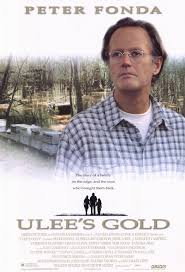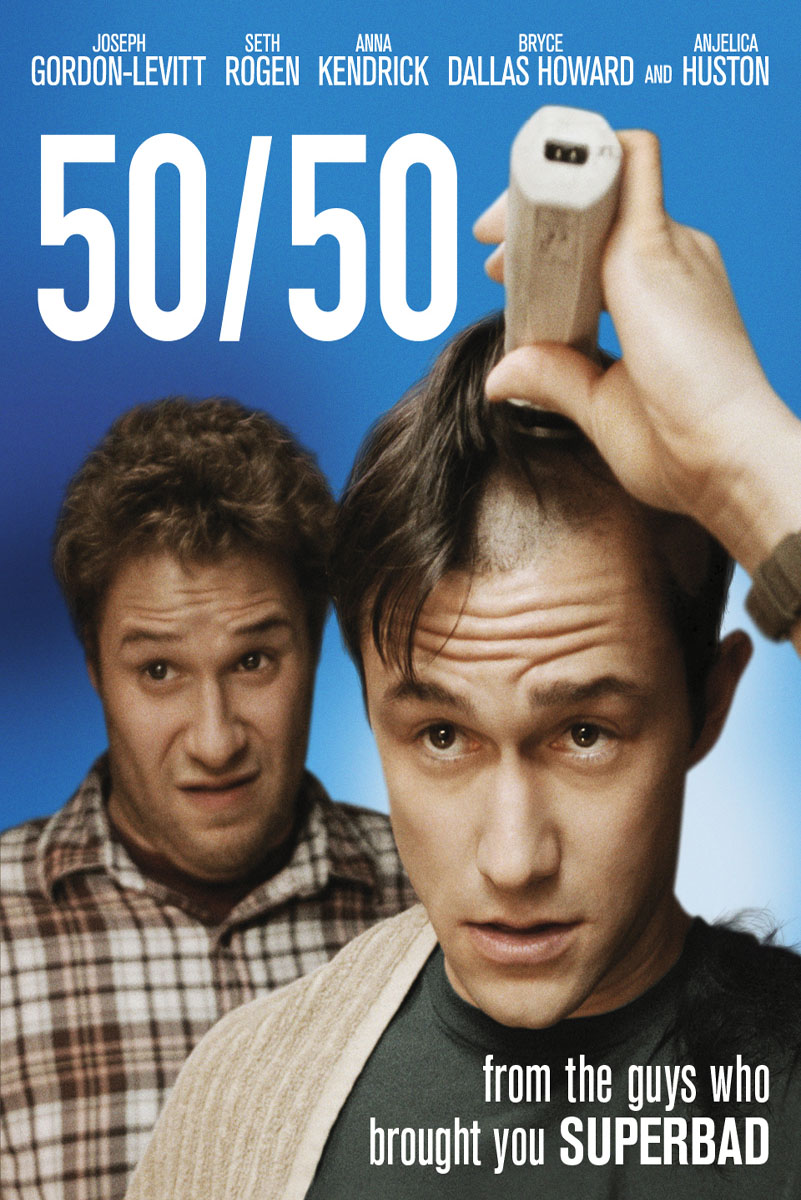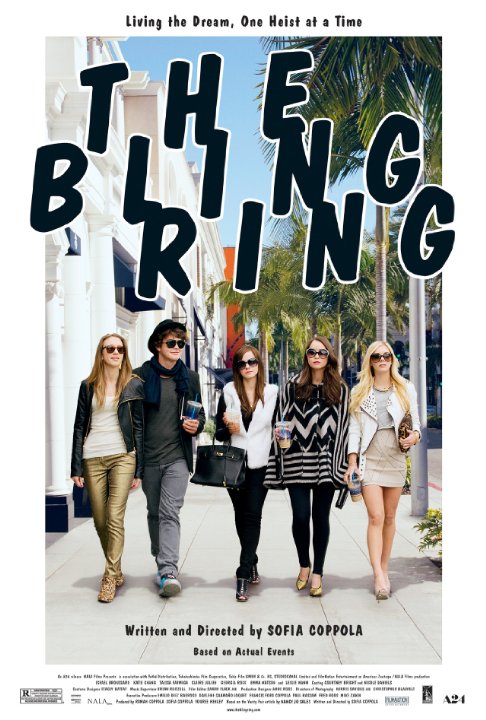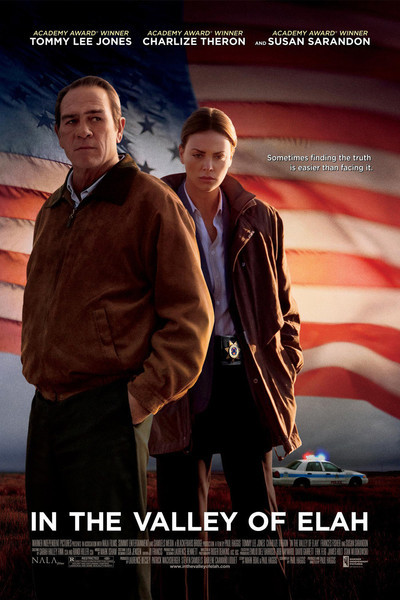
Too good to be true, but
‘Ulee’ has a heart of gold
We can be certain by the end of “Ulee’s Gold” that we’re being slightly put on ... that Helen can’t overcome serious substance issues like a bout of the flu, that prison generally doesn’t reform people the way it does Jimmy.
We don’t care.
“Ulee’s Gold” is the simplest type of fantasy — a good home with loving parents. Those who have it, they know they are fortunate. Those who don’t fall into two camps: 1) disheartened at what could’ve been, or 2) utterly ignorant of what a good home is and the value of it.
Ulee’s children and grandchildren straddle 1 and 2. It is the goal of this movie to prevent a complete descent for them into 2 ... and perhaps even elevate them to that first group that every one of us deserves.
All of this, and so far we haven’t said even a word about Ulee, despite the fact Peter Fonda’s rightly Oscar-nominated performance is the only reason many remember the film.
Fonda is reminiscent of his father in “On Golden Pond.” Whether he took inspiration from that film is unknown. But in the staggering library of Fonda family greats, “Ulee’s Gold” is a legitimate bookend to the collection on Henry’s shelf.
In “Pond,” Norman is a cranky old man — older than Ulee, but that does not matter — who has a grandfather-esque relationship with a difficult child. The beauty is in how each eventually finds something of great value in the other. This overshadows the film’s more pressing goal, to finally thaw the cold war between Norman and his daughter, which could be considered a bit incomplete, but excusable given the payoff between Norman and his future stepson.
Ulee has a difficult grandchild to deal with, but it’s the immediate generation that is his great concern. His son is in prison, and his daughter-in-law has some kind of substance-abuse and responsibility issues, to the point she has left her children behind and skipped town.
One of the advantages to “Pond” is that the characters do not require any backstory. We see a cranky old man, resentful/self-conscious daughter and snarky teen boy and we know what to expect. One of the setbacks to “Ulee” is that too much has occurred off-camera and must be told, not shown. Ulee has experienced a most remarkable, no doubt terrifying, tour of duty in Vietnam decades ago. Everyone in his unit died, except for him, and other than a bad back, he seems to have made it out quite well. How did he do it? “Your Grandpa was tricky, lucky,” he tells one granddaughter. “That’s why I made it out. Maybe only the tricky made it out.”
Likewise, we have no idea exactly what his wife was like, or how his son came to run with the wrong crowd or exactly what type of heist they pulled off that would put his son in jail for extensive time and let the other guys go free. And this woman his son married who became a mother, was she trash from the get-go?
This is problematic, not a deal-breaker. Ulee raises the two granddaughters, committed to giving them the basics and little more. One can’t possibly imagine him pulling them aside for warm chats on life. He cares about them, but it’s mostly a business relationship. Their parents are absent; he does it out of sense of obligation. Grandpa Ulee is not the least bit interested in dealing with teen and pre-teen subjects. If the kids defy him, they will get a scolding, maybe some extra chores, maybe a punishment involving food or a grounding, but that’s about it. Ulee is not going to waste his time straightening them out.
The youngest daughter, Penny, is too good to be true. No one would ever guess in a million years that her father is in jail for armed robbery and that her mother is some kind of junkie who abandoned her. She says she cannot even really remember her mother, and thus can be regarded as essentially Ulee’s child. Is her impressiveness a credit to Ulee’s guidance? It seems so.
The older daughter, Casey (Jessica Biel in her film debut), initially borders on cliche, the updated punk rock look, dyed hair, outrageous clothing, accepting rides from bad boys, etc. The presumption is that Casey spent too much time in her parents’ home and gradually went astray, whereas Penny has probably only really known Ulee as a father figure and reaped the benefits of quality parenting.
This is an acceptable premise, except the turnabout we see in Casey is too immediate to pass muster. This is a character not given enough chance to go wrong. The script seems to suddenly place her onto the onramp at 60 mph when she ideally should fight to merge with life’s traffic at 25 mph. She suddenly becomes a responsible person once someone gives her an important responsibility — this type of rising to the occasion is common in movies, but usually at the end, and with significant buildup ... not as the crutch it is used as here.
Unlike “Pond,” it is the more immediate generation that requires the most reconciliation. The grandchildren are not going to change Ulee. His daughter-in-law might. He has sworn her off, but out of a sense of obligation, he takes a small risk in bringing her back to his home.
This key moment is set up neatly in a very well-crafted prison scene. Jimmy has summoned Ulee to ask him something important. At the time, we are confused by Jimmy’s motivation as much as Ulee is, only to realize in hindsight that Jimmy is as clever as his father — and that his human enlightenment might even be further along. He first asks Ulee to go to Orlando and bring his wife home before “Eddie and Ferris do something to her.” When Ulee scoffs at the merits of that request, Jimmy adds, “She’s sick, Dad.”
Eventually we will realize that Jimmy’s motivation was indeed two-fold, but not exactly pure: He did regard her as sick as opposed to contemptible ... but also was afraid she would tell the bad guys where the money was hidden. (His choice of hiding place is yet another sign he is as tricky as Dad.)
The return of Helen leads to, unfortunately, too much paint-by-number drama. Everything is too easy here; the script doesn’t work hard enough to push this film into a higher status that might’ve led to Fonda actually winning the Oscar. (He lost to Jack Nicholson in “As Good as It Gets,” a worthy foe, but beatable.)
The bad guys are so dumb that they are as likely to succeed as the Washington Generals. Notice their names are Eddie and Ferris, not something a bit more sinister. Something has to give logically; either they are so inept that they couldn’t possibly have avoided jail for this long, or they are actually savvy street toughs who have spent too much time at DisneyWorld before we meet them. Their demise is overly long and frustratingly uneventful, little more than a reminder they are dumb. The love interest conveniently is a pretty woman already renting a home from Ulee but someone he hasn’t really noticed before ... until she’s capable of treating Helen better than a fully staffed hospital could. The Tupelo honey business is an interesting sideshow but seems more like a PBS documentary than an insight into who Ulee is. For director Victor Nunez, too many scenes are overdone, particularly Connie’s discovery of the women bound and gagged (showing her crossing the dark street would be enough) but also Ulee’s initial meetings with Eddie and Ferris, and the traumatic ride back with Helen in which one brief outburst at the onlookers would’ve sufficed.
But Nunez has a crown jewel, and it is Fonda. He barely looks older than his Captain America in “Easy Rider” three decades earlier, save for a few wisps of gray on the sides. It is the way he walks in this film that gives him a commanding presence, a lumbering gait, always in jeans. There are close-ups of his face when someone speaks to him, just like in “Easy Rider,” and you see this is someone who does not get flustered, always in control. When during extreme duress he quietly apologizes to his daughter-in-law, you feel like everything will be OK.
And in the end, not always so certain. His signature line is this: “Meeting someone like you Eddie has done me a world of good ... It reminds me that there’s all kinds of weakness in the world — not all of it is evil. I forget that from time to time.” What he has shown by his actions — that his family members are worth a second chance — he finally offers in words.
“Ulee’s Gold” appears to have faded in the public’s consciousness in the decade since its release. More undoubtedly remember “As Good as It Gets,” though that too seems to have slightly limited staying power. “Ulee’s Gold” unfortunately is not great filmmaking. But it is a great character and a tremendous message. The latter two are enough to qualify it as a very significant film.
This movie draws a contrast with a more recent work about a traumatic father-son relationship, “The Cooler.” In that, William H. Macy as the father is willing to give his estranged son a chance and hope for the best, only to be seriously disappointed. Ulee on the other hand has set the bar at zero. Any surprises will be on the upside. His film doesn’t deal so much in reality, but satisfaction. He gains an understanding of dysfunction; his children and grandchildren gain an understanding of the sacrifices it takes to create a good home — something everyone should have.
4 stars
(May 2009)
“Ulee’s Gold” (1997)
Starring Peter Fonda as Ulee Jackson ♦ Patricia Richardson as Connie Hope ♦ Christine Dunford as Helen Jackson ♦ Tom Wood as Jimmy Jackson ♦ Jessica Biel as Casey Jackson ♦ Vanessa Zima as Penny Jackson ♦ Steven Flynn as Eddie Flowers ♦ Dewey Weber as Ferris Dooley ♦ J. Kenneth Campbell as Sheriff Bill Floyd ♦ Traber Burns as Chance Barrow ♦ Ryan Marshall as Charley Myers ♦ Chad Fish as Markie ♦ Will Sexton as Child at Rest Stop ♦ Dale C. Marshall as Beekeeper Assistant ♦ James T. Whitehurst as Beekeeper Assistant ♦ Charles Branner as Beekeeper Assistant ♦ Jim Flanagan as Pool Player
Directed by: Victor Nunez
Written by: Victor Nunez
Co-producer: Sam Gowan
co-producer: Peter Saraf
Line producer: Stewart Lippe
Executive producer: Edward Saxon
Executive producer: John Sloss
Executive producer: Valerie Thomas
Original music: Charles Engstrom
Cinematography: Virgil Mirano
Editing: Victor Nunez
Casting: Judy Courtney
Production design: Pat Garner
Art direction: Debbie DeVilla
Set decoration: Charles Kulsziski
Costume design: Marilyn Wall-Asse
Unit production manager: Jennifer Fong
Production manager (Bee World): Melissa Shepard Sykes
Makeup: Marilyn Wall-Asse ♦ Hope Sky White ♦ Danica Winter ♦ Jimmy Jay
Acknowledgment: Holling C. Holling (“Paddle to the Sea” copyright)





